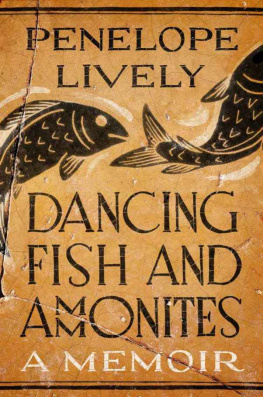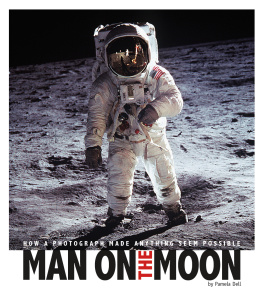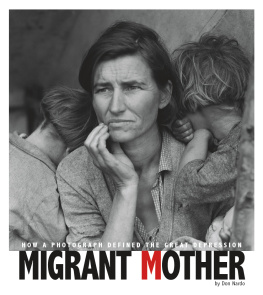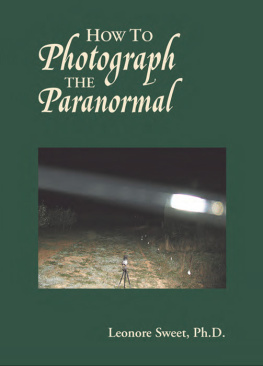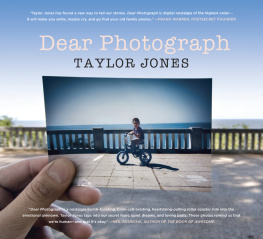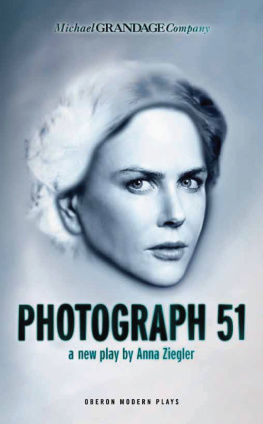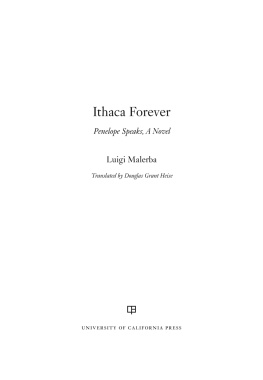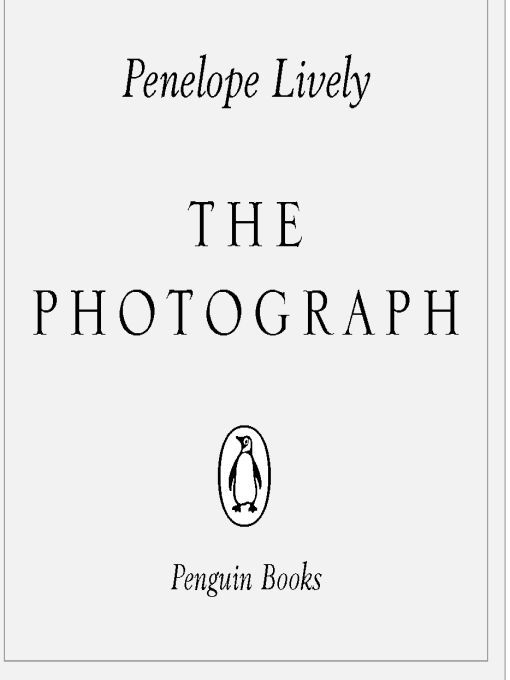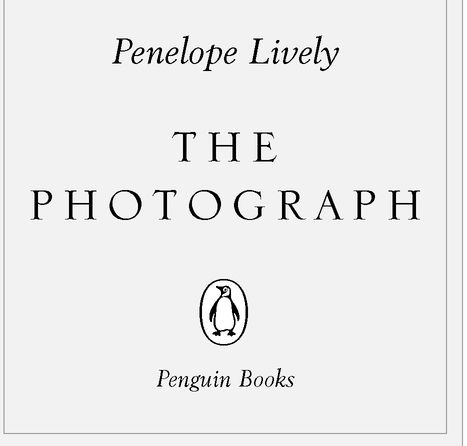Table of Contents
Praise for Penelope Livelys The Photograph
[Lively] has written a novel that line by line, page by page, seems like a marvel of narrative fluency and pose, deftly written, psychologically gripping and casually authoritative... beautifully observed and finely nuanced.The New York Times
An unflinching meditation on marriage and family.
Entertainment Weekly
One of Livelys most satisfying novels: cleverly conceived, artfully constructed and executed with high intelligence and sensitivity. It is also a surprisingly suspenseful story, with developments unfolding in two directions... Lively has exceeded herself in her portrayal of these characters. Not only has she created a cast of memorably distinctive and believably complex individuals, but she has also succeeded in the subtle and difficult task of showing us how their feelings and conceptions are being transformed, both by the revelations about the past and by their ongoing, sometimes painful encounters with each other in the present.
Los Angeles Times Book Review
In The Photograph, as in her Booker Prize-winning tour de force Moon Tiger, Lively skillfully orchestrates her material to serve an essentially psychedelic truth: no reality exists outside a spectrum of different perspectives, all a bit askew.
The Atlantic Monthly
[Lively] has a smoothly versatile style of storytelling, drifting in and out of her characters heads, weaving action, reminiscence and interior monologue into a seamless whole.
The Washington Post Book World
Social comedy, psychological mystery, and above all, elegy, this poignant and accomplished novel offers the ritual absolution of art, even as it acknowledges the painful absoluteness of grief.
The Womens Review of Books
Lively sustains her reputation as a master of literary economy and expert prober of shadowy regions of the heart.
The Seattle Times
Lively is a novelist of uncommonly subtle perceptiveness... she is unfailingly compassionate toward her characters.
The Philadelphia Inquirer
A moving, even heartbreaking, story about a woman who wanted only to be loved and never really was, but whose legacy ensures a new caring among many she left behind.
Rocky Mountain News
Subtle, complex and knowing.
The Free Lance-Star (Fredericksburg, VA)
A practically perfect novel... we know how Kath looked, how she moved, how she felt. Ultimately, we even learn how she died, all of it forming a portrait of a sympathetic, three-dimensional, tormented human being.The Arizona Daily Star
Penelope Lively makes writing seem easy.
The Times Literary Supplement
[Lively] shows no sign of running out of inventiveness or of failing to write books that are hugely pleasurable to read. This one is deftly edged with humor... yet at the heart of the book is a wistful sadness. The Independent on Sunday (London)
Lively has always been masterly at creating the unease of a perspective through time... she writes with deceptive simplicity, but every word is exact.New Statesman
A fine example of a moment outside time.
The Guardian (London)
Ruminative and suspenseful... As an account of the pasts cataclysmic resurfacing and the possibility of faithfully recreating history, it ranks among the best.
Time Out London
PENGUIN BOOKS
THE PHOTOGRAPH
Penelope Lively is the author of more than twenty books of fiction and nonfiction, including A House Unlocked and the Booker Prize-winning Moon Tiger. In addition to the Booker Prize and the Whitbread Award, she has received the Carnegie Medal and is a fellow of the Royal Society of Literature, PEN, and the Society of Authors. Penelope Lively lives in London.
To request Penguin Readers Guides by mail
(while supplies last), please call (800) 778-6425
or e-mail reading@us.penguingroup.com.
To access Penguin Readers Guides online, visit our
Web site at www.penguin.com.
Glyn
Kath.
Kath steps from the landing cupboard, where she should not be.
The landing cupboard is stacked high with what Glyn calls low-use material: conference papers and student references and offprints, including he hopes an offprint that he needs right now for the article on which he is working. The strata in here go back to his postgraduate days, in no convenient sequential order but all jumbled up and juxtaposed. A crisp column of Past and Present is wedged against a heap of tattered files spewing forth their contents. Forgotten students drift to his feet as he rummages, and lie reproachful on the floor: Susan Cochranes contributions to my seminar have been perfunctory.... Labeled boxes of photographsAerial, Bishops Munby 1976, Leeds 1985are squeezed against a further row of files. To remove one will bring the lot crashing down, like an ill-judged move in that game involving a tower of balanced blocks. But he has glimpsed behind them a further cache which may well include offprints.
On the shelf above he spots the gold-lettered spine of his own doctoral thesis, its green cloth blotched brown with age; on top of it sits a 1980s run of the Yorkshire Archaeological Journal. Come to think of it, the contents of the landing cupboard are a nice reflection of his own tradeit is a landscape in which everything coexists, requiring expert deconstruction. But he does not dwell on that, intent instead upon this, increasingly irritating, search.
He tugs at a file to improve his view of what lies beyond and, sure enough, there is a landslide. Exasperated, he gets down on hands and knees to shovel up this mess, and suddenly there is Kath.
A brown foolscap-size wallet file, with her loopy scrawl across the flap: Keep!
She smiles at him; he sees her skimpy dark fringe, her eyes, that smile.
What is she doing here, in the middle of all this stuff that has nothing to do with her? He picks up the file, stares. He cannot think how it got here. Everything of hers was cleared out. Back then. When she. When.
Hang on, though. Here underneath it are a couple of folders, also with her handwriting: Recipes. Since when did Kath go in for serious cooking, for heavens sake? He opens the folder, flicks through the contents. Indeed, yescuttings from newspapers and magazines in the late 1980s, but petering out fairly rapidly, which signifies. He investigates the second folder, which contains receipted bills, many of them red-flagged second demands, which signifies also, and an incomplete series of bank statements, indicating a mounting overdraft.
It would seem that this assortment of her things got pushed in with his papers by mistake during the big clearing-out operation. The hurried, distracted clearing-out operation. Elaine had volunteered to sort out and dispose of Kaths possessions. She missed this lot. And here they have lain ever since, festering.
Well, no, not exactly festering, but turning a little brown at the edges, doggedly degrading away as is everything else in here, doing what inanimate objects do as time passes, preparing to give pause for thought to those whose business is the interpretation of vanished landscapes.


